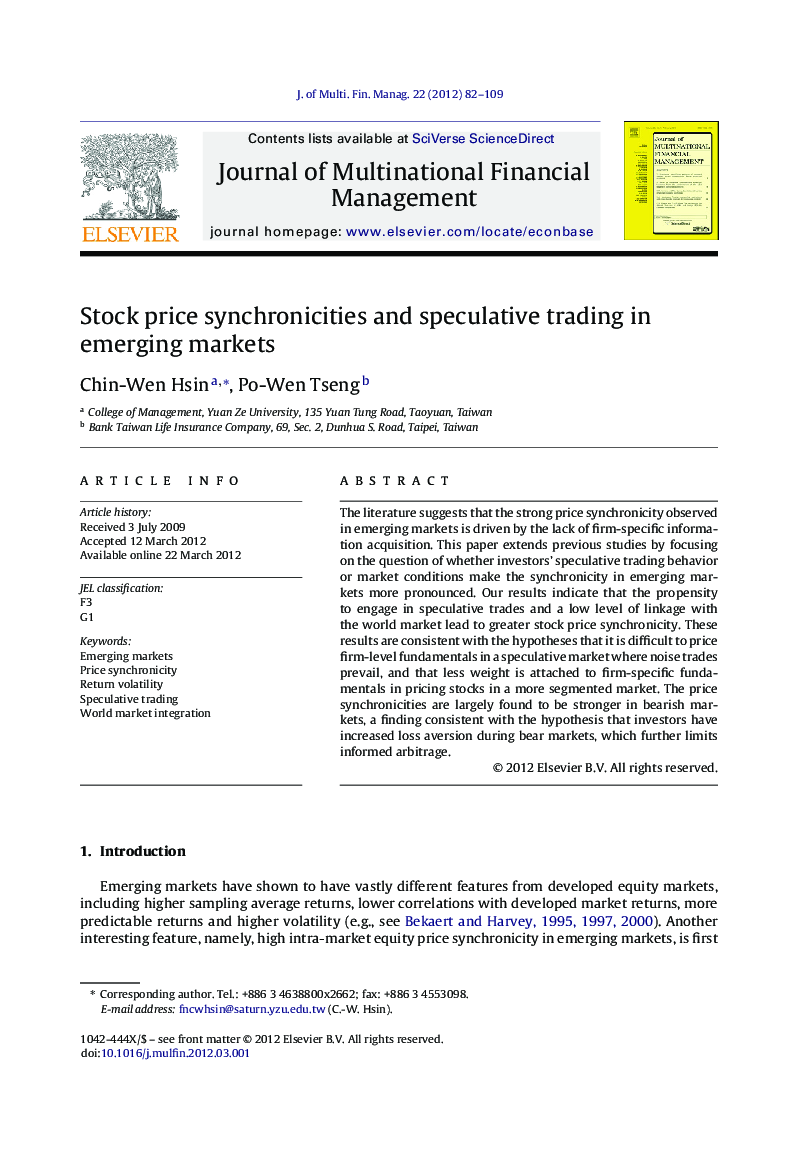| Article ID | Journal | Published Year | Pages | File Type |
|---|---|---|---|---|
| 968617 | Journal of Multinational Financial Management | 2012 | 28 Pages |
The literature suggests that the strong price synchronicity observed in emerging markets is driven by the lack of firm-specific information acquisition. This paper extends previous studies by focusing on the question of whether investors’ speculative trading behavior or market conditions make the synchronicity in emerging markets more pronounced. Our results indicate that the propensity to engage in speculative trades and a low level of linkage with the world market lead to greater stock price synchronicity. These results are consistent with the hypotheses that it is difficult to price firm-level fundamentals in a speculative market where noise trades prevail, and that less weight is attached to firm-specific fundamentals in pricing stocks in a more segmented market. The price synchronicities are largely found to be stronger in bearish markets, a finding consistent with the hypothesis that investors have increased loss aversion during bear markets, which further limits informed arbitrage.
► We examine whether speculative trading behavior affects market synchronicities. ► We find that the propensity to speculative trades lead to greater synchronicities. ► Price synchronicities also decrease with the level of linkage with the world market. ► Price synchronicities are generally stronger during bearish markets.
